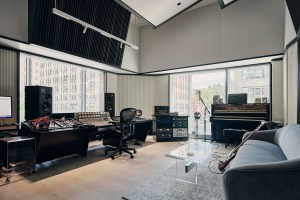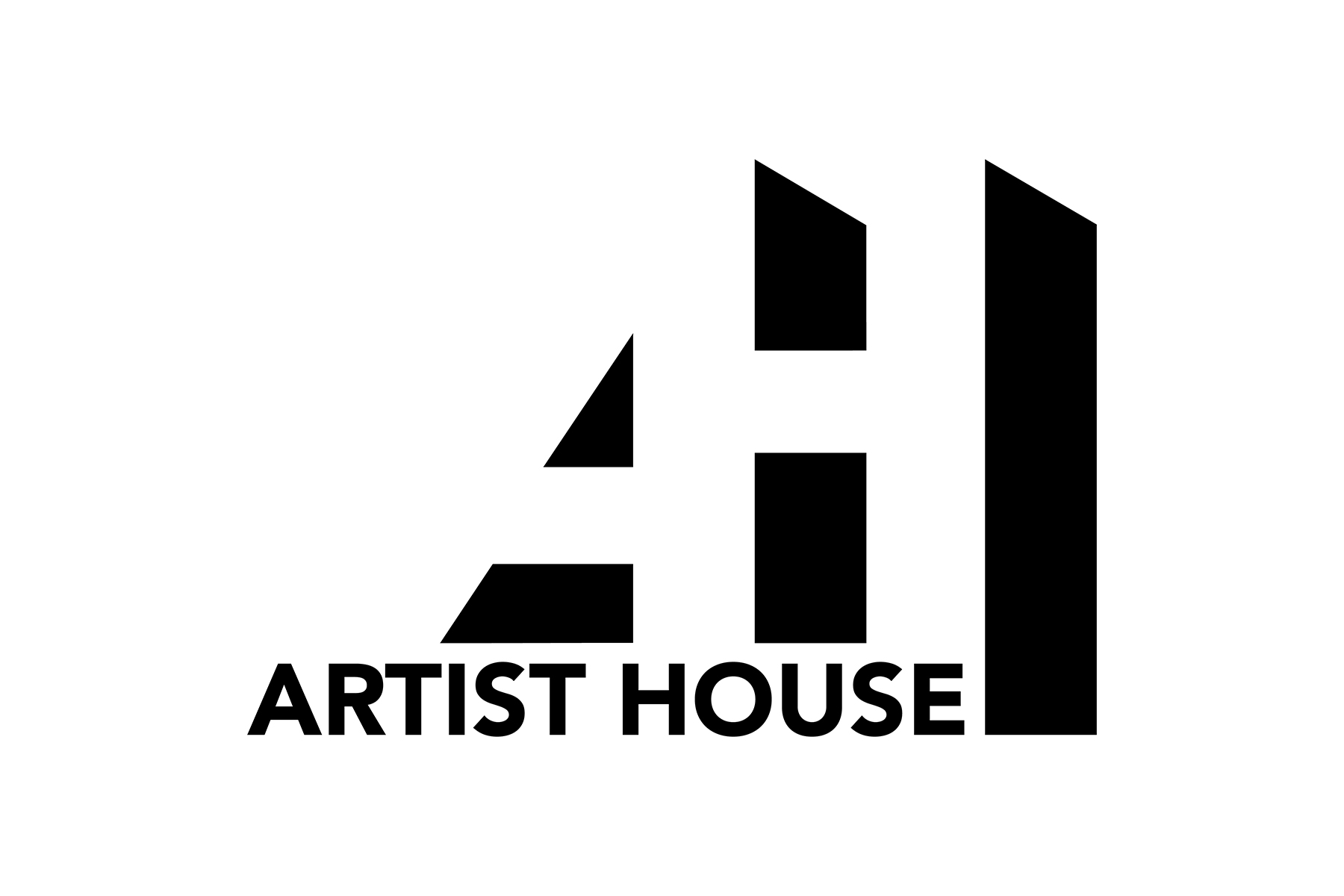Artist House Co-Founders Explain the Vision Behind the Massive, Luxe Studio Hub Opening in NYC
“The best time to build an oasis in the desert is when there’s not another oasis,” Gregg Wattenberg tells Billboard from a spacious recording studio overlooking a bustling lower Manhattan street. Wattenberg, a veteran songwriter and producer, has made hits with Goo Goo Dolls, Train, John Legend, Five for Fighting, Daughtry and plenty of others, but over the last few years, he and fellow industry veteran Steve Lerner (Wind-Up Entertainment co-founder and former CEO) have been focused on Artist House, an oasis that’s both physical and conceptual.
On one hand, the multi-level complex is a gorgeous, state-of-the-art recording studio in Tribeca — certainly something New York City could use more of these days, especially when compared to Los Angeles. On the other, Artist House is intended as a grounding force amid the shifting, treacherous sands of the music biz for songwriters and artists on the lookout for people who can help make their creative visions into more than just desert mirages.
“It was started [a few years ago] out of basically seeing how songwriters were getting punished from the streaming economy,” Wattenberg says. “People were asking me to speak on Capitol Hill about how it’s unfair, and I saw other people doing it, and nothing was changing. And I thought, ‘Okay, this is not gonna change anytime soon, songwriters need help.’ Instead of screaming at Spotify and at the streaming platforms for doing these terrible rates, what if we actually just give them services, marketing, synch, promotion, some money and/or a place to work, and we asked the artist to be their partner.”
The idea of partnership is key to Artist House, which has a seven-point “Values & Beliefs” mission statement that lays out its commitment to a “community of equals,” innovation and inclusion, among other values. And they’re putting their money where their mouths are, providing free health insurance for artists they sign (“mental health issues for artists just get harder and harder, so we want to support their physical and mental health,” says Lerner) and offering 10% of master net profits based on share of the song. “We’re inviting all the creatives around this area — not just our songwriters, all songwriters, whether they’re on the majors or they’re on the indies — and giving them all 10% of the master monies,” Wattenberg says (an artist can opt out). “We’re all in this together,” he continues. “We’re going to be abundantly transparent. We’re going to treat you well, and we’re going to split the money with the people who help you make the music great.”
“We want to be able to tap the best of the best in the creator community to support that and to break through that clutter,” says Lerner, who describes their approach as “boutique” and “high touch.” “Let’s get great songs and the largest studio complex in the U.S. full of creatives, bring talent here, make great music, and then (leverage) the expertise in innovative marketing to bring them to market.”
The Artist House co-founders make a point to emphasize that the four companies under the umbrella — Art House Studios, Artist House Records, Artist House Publishing and AH Management Collective — have separate teams and often serve different artists (though some artists sign to the label and management company, for example). The AH Management Collective co-leads are Adina Friedman and Ian LaPlace; its artists include Lindsey Stirling, Princess Nokia, Rio Romeo, Teni and Izzy Escobar.

Artist House
Zack Dezon
While the companies are separate, they’re united by the values statement and the communal space, which can lead to collaborations in the studio, battles at the ping-pong table or an exchange of ideas in the coffee lounge. The key is bringing the right people together for the right reasons, and finding artists they believe have long-term careers as opposed to scrambling to sign the latest singer with a viral hit on TikTok. “The labels are competing with each other, and they don’t look under the hood,” says Wattenberg of the rush to sign singers who often turn out to be one-hit wonders. “We are not going to drink the Kool-Aid. Yeah, you might have a song right now that’s good, but that doesn’t mean you have a second song that’s good. We want to know who you are. So if you like not knowing your partner and just getting the biggest deal possible, we’re not the right partner for you. We need to vet you. You need to vet us.” (They add that the problem is aided and abetted by lawyers who are happy to sign deals quickly and successively, as opposed to making sure the artist finds a label where they’re best placed for success.)
What Wattenberg looks for is a bit more intangible than virality. “We want somebody who has something about them that’s a little bit interesting, a little bit weird, a little bit strange. Sonically, I’m a big fan of voice. When you open your mouth and it’s no one else’s voice, not just lyrically, but sonically, that’s a head start.” That being said, they’re far from naïve about the music biz in the social media era. “The other box you have to check — which you didn’t have to check 15 years ago — is, ‘Could the person market themselves?’” he says. “There’s a performance aspect to it, just like performing on stage. You have to use your performance skills now in a visual medium, and that is going to weed out some people who are really talented but who aren’t great at marketing themselves, unfortunately.”
“Or we see their ability to learn and an openness to learn [how to market themselves]. We’ve got that expertise to help them, they just need to have that desire and the openness to learn,” Lerner adds. “The most important thing is our people and our culture.” Fair enough — but a cinematic view of Tribeca while you hammer out a song can’t hurt.

Artist House Logo
Artist House








